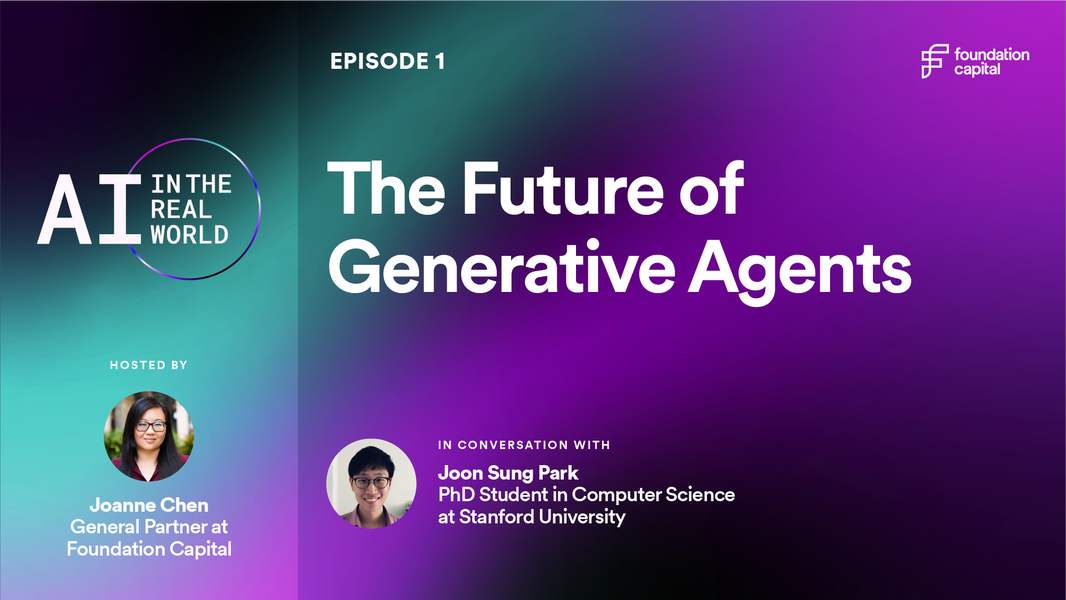Welcome to “AI in Practical Scenarios”
In the upcoming period, a sequence of in-depth dialogues will be hosted with prominent AI experts to delve into the real-world applications of cutting-edge models. To inaugurate this series, a discussion took place with Joon Sung Park, a Ph.D. candidate in computer science at Stanford. His research spans human-computer interaction, NLP, and machine learning, focusing on developing LLM-driven agents that emulate human-like communication and decision-making processes.
Commencing his Ph.D. journey in 2020 post the GPT-3 launch, Joon, alongside his peers at Stanford, explored the transformative potential of “foundation models” like GPT-3 in transcending their initial training boundaries. This exploration prompted a fundamental query: how can these models catalyze novel and distinctive applications given their immense capabilities?
Joon’s work revolves around leveraging LLMs to tackle the enduring puzzle of creating AI agents that authentically replicate human behavior. By tapping into the vast data repositories of the web, digitized books, and Wikipedia, LLMs inherently grasp human behavioral nuances. In his seminal paper “Generative Agents: Interactive Simulacra of Human Behavior,” Joon and collaborators introduced 25 AI agents into a virtual township named “Smallville.” These agents, powered by ChatGPT and a sophisticated architecture enabling memory retention and planning, organically interacted over two days, forming relationships and responding to unforeseen circumstances.
The ramifications of Joon’s research transcend the confines of Smallville. Generative agents hold the promise of revolutionizing our comprehension of—and capacity to resolve—complex real-world challenges. Through lifelike simulations, social scientists gain a platform to dissect large-scale group dynamics, policymakers can simulate legislative impacts, architects can optimize designs, and businesses can simulate customer interactions and refine strategies seamlessly.
The subsequent sections distill the key insights gleaned from the conversation with Joon, shedding light on the evolving landscape of AI agents and their diverse applications.
LLMs: A Paradigm Shift in Agent Design
Traditionally, agent design relied on rule-based systems, encountering limitations in adapting to real-world unpredictability. LLMs, as per Joon, have been instrumental in surmounting these challenges by automating agent behavior generation through context-based predictive capabilities. By eliminating manual scripting and integrating memory functions, LLMs empower AI agents to navigate dynamic environments adeptly.
Tool Utilization and Simulations: Dual Foci of Agent Development
Two distinct realms in agent research have emerged: tool-based agents automating intricate workflows and simulation-focused agents replicating human behavior in virtual domains. While the former stream simplifies tasks like ordering or creating presentations, the latter aims at mirroring human interactions across diverse fields.
ChatGPT: Beyond the Conventional “Killer App” for LLMs
Despite the widespread adoption of models like ChatGPT in diverse applications, Joon challenges its status as the ultimate “killer app” for LLMs. He advocates for applications that harness LLMs’ full potential in reasoning and planning, offering users a more guided and valuable experience.
Multimodal Models: Elevating Agent Performance
The advent of multimodal models capable of processing varied inputs like images and audio promises enhanced agent interactions, enabling nuanced user engagement and swift environment responses.
Soft-Edged Problems: A Strategic Focus for AI Development
Distinguishing between hard-edged and soft-edged problems, Joon advocates for prioritizing soft-edged challenges that allow for iterative improvements and user-centric product development. Soft-edged problem spaces, such as content generation and interactive entertainment, offer room for innovation and user-centric solutions.
User-Centric Design: A Cornerstone of Agent Success
Joon emphasizes the importance of addressing genuine user needs and delivering tangible value through AI agents. Focusing on enhancing user experiences and iteratively refining products is pivotal for ensuring agent efficacy and adoption.
Tackling Unresolved Challenges in AI Simulation
Efforts are underway to enhance AI simulations’ representativeness, scalability, and grounding in real-world scenarios. Overcoming constraints like limited behavioral expressions and demographic biases in models remains a pressing concern for researchers.
Integration of Classic Product Principles with LLMs
While leveraging cutting-edge foundation models, adherence to timeless product development principles—such as iterative problem-solving, user feedback integration, and tangible value delivery—remains critical for building successful AI products.
Stay tuned for forthcoming dialogues in this series, delving deeper into the realm of AI-driven agents and their expansive real-world applications.










